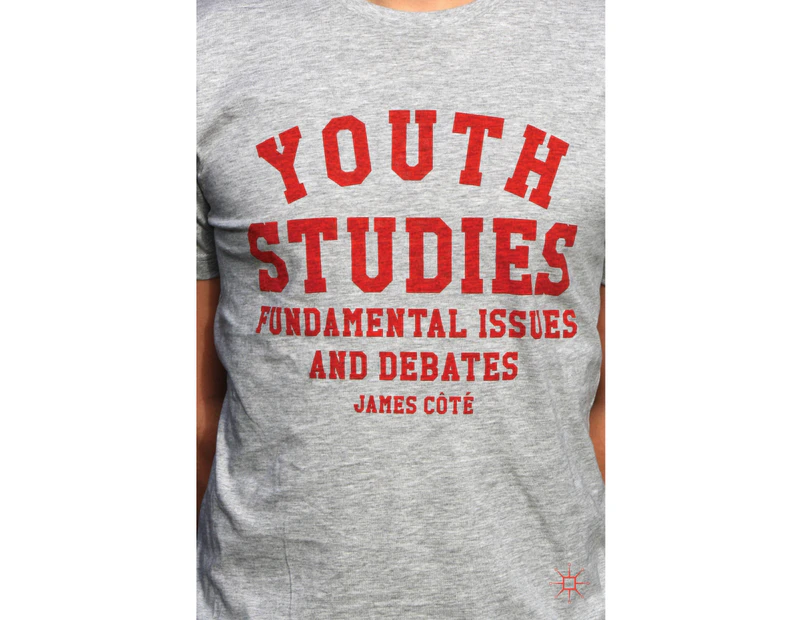Youth Studies: Fundamental Issues and Debates

The burgeoning field of youth studies encompasses multiple viewpoints, presenting a confusing picture to novices and experts alike. This insightful text goes to the heart of the fundamental issues and debates that characterize this developing field, giving readers a clearer understanding of its current progress and future prospects.
James Côté's lively, debate-focused overview of the underlying paradigms and theories in youth studies - drawn from the overlapping disciplines of sociology, psychology and cultural studies - functions both as an introduction to the area and as an exercise in critical thinking, putting its readers on the cutting-edge of the field. The chapters move from identifying the key 'threshold meta-concepts' that influence research, to showing readers how to critically evaluate key debates in areas that are central to students' lives, including education, work, family, technologies, youth culture, identity and politics.
Youth Studies is the ideal companion to youth-related degree programmes and to youth modules in sociology, social work, social policy, psychology and other related disciplines.
James Côté
Publisher: Springer
Published: UK, 1 May 2014
Format: Paperback, 262 pages
Other Information: Illustrated
Dimensions: 15.5 x 1.6 x 23.5 centimeters (0.39 kg)
Writer: James E. Cote
Table of Contents
Introduction.- PART I: THRESHOLD META-CONCEPTS AND THE CONTOURS OF YOUTH STUDIES.- 1. The Youth Question.- 2. Theoretical Approaches to the Youth Question.- 3. Seminal Debates in Youth Studies.- PART II: THE SOCIO-ECONOMIC INFLUENCES STRUCTURING THE YOUTH PERIOD.- 4. Education and the Youth Period.- 5. Work and Changing Employment Opportunities.- 6. Family Life and Parental Influence.- 7. The Mediated World and Technological Influences.- PART III: The Changing Experiences of the Youth Period.- 8. Youth Culture.- 9. Youth Identity Formation.- 10. Youth Social Identities.- 11. Youth Politics.- PART IV: CONCLUSIONS: THE FUTURE OF YOUTH STUDIES.- 12. Youth Studies Coming of Age.
Promotional Information
"This is an interesting, informative and thought provoking text. It should become core reading for youth related courses and programmes" - Tracy Shildrick, Professor of Sociology and Social Policy, University of Leeds, UK "This major book by James Cote is a very welcome contribution to the field of youth studies. It provides a global focus to a wide-ranging number of rich subject areas involving the 'youth question' in youth studies. The book will be an important resource for academics and students, encouraging them to engage each topic with reflection and critical thinking. Readers will treasure this book, which provides tools for understanding changing structures of the youth period, as well as analyses of interdisciplinary debates, ontologies, political agendas, and value priorities of youth studies over the history of the field. The book is well structured pedagogically, giving a solid grounding for students and teachers in youth issues and youth studies from introductory to advanced courses in higher education, as well as for general readers." - Helena Helve, Professor Emerita of Youth Research, Tampere University, Finland
About the Author
James Cote is Professor of Sociology at the University of Western Ontario, Canada. He is President of the Sociology of Youth Research Committee for the International Sociological Association and Associate Editor of the Journal of Adolescence. He is the successful author of nine books, including Arrested Adulthood and Adolescent Storm and Stress.
Reviews
"This is an interesting, informative and thought provoking text. It should become core reading for youth related courses and programmes" - Tracy Shildrick, Professor of Sociology and Social Policy, University of Leeds, UK "This major book by James Cote is a very welcome contribution to the field of youth studies. It provides a global focus to a wide-ranging number of rich subject areas involving the 'youth question' in youth studies. The book will be an important resource for academics and students, encouraging them to engage each topic with reflection and critical thinking. Readers will treasure this book, which provides tools for understanding changing structures of the youth period, as well as analyses of interdisciplinary debates, ontologies, political agendas, and value priorities of youth studies over the history of the field. The book is well structured pedagogically, giving a solid grounding for students and teachers in youth issues and youth studies from introductory to advanced courses in higher education, as well as for general readers." - Helena Helve, Professor Emerita of Youth Research, Tampere University, Finland
